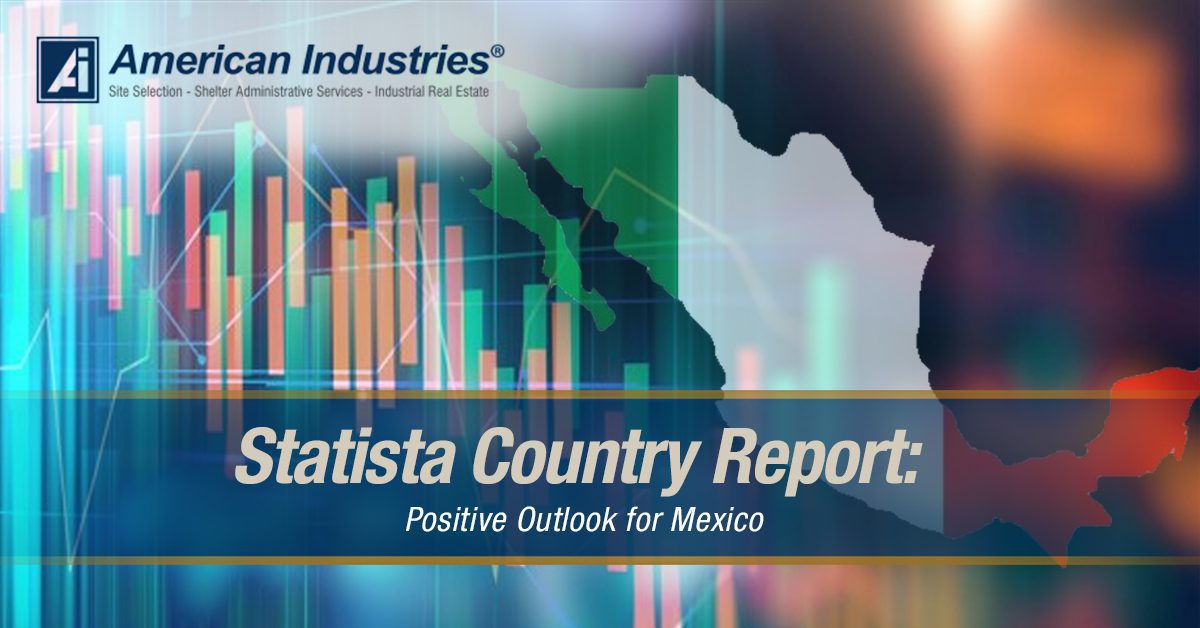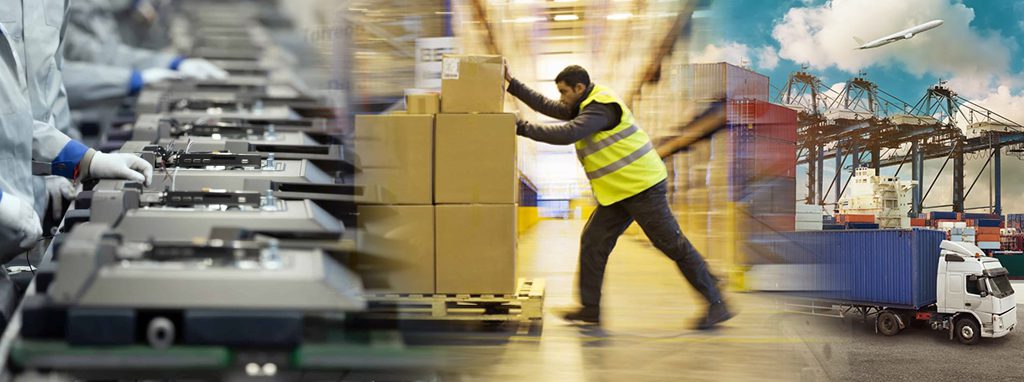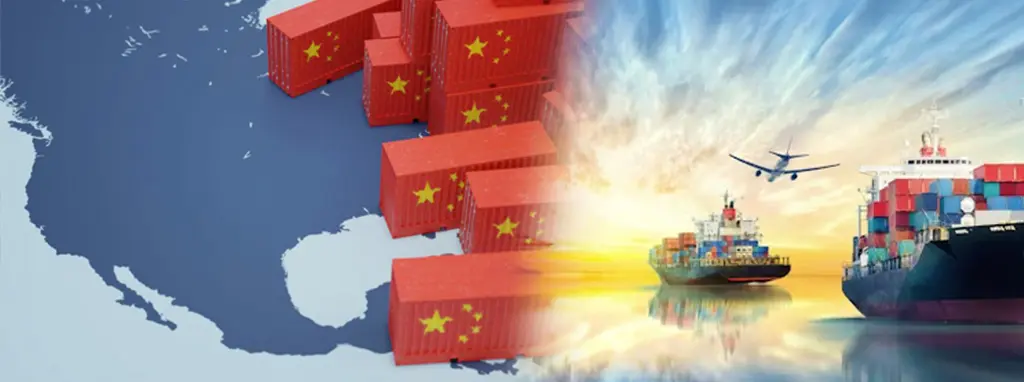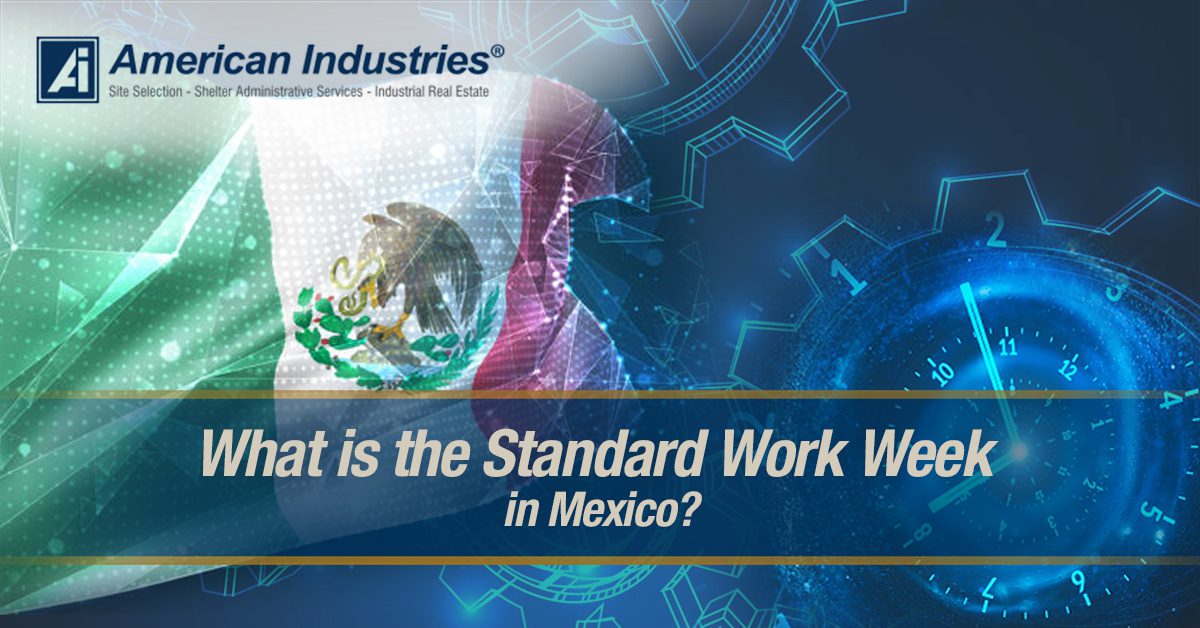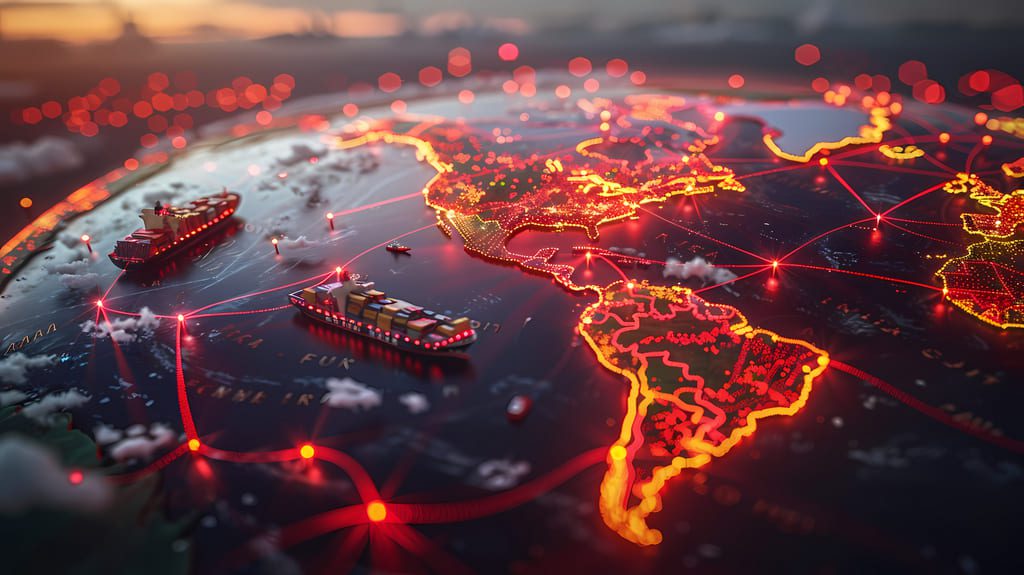The Evolution of Global Supply Chains: Lessons Learned and What’s Next
By Liliana Hernández | CEO at American Industries Group®
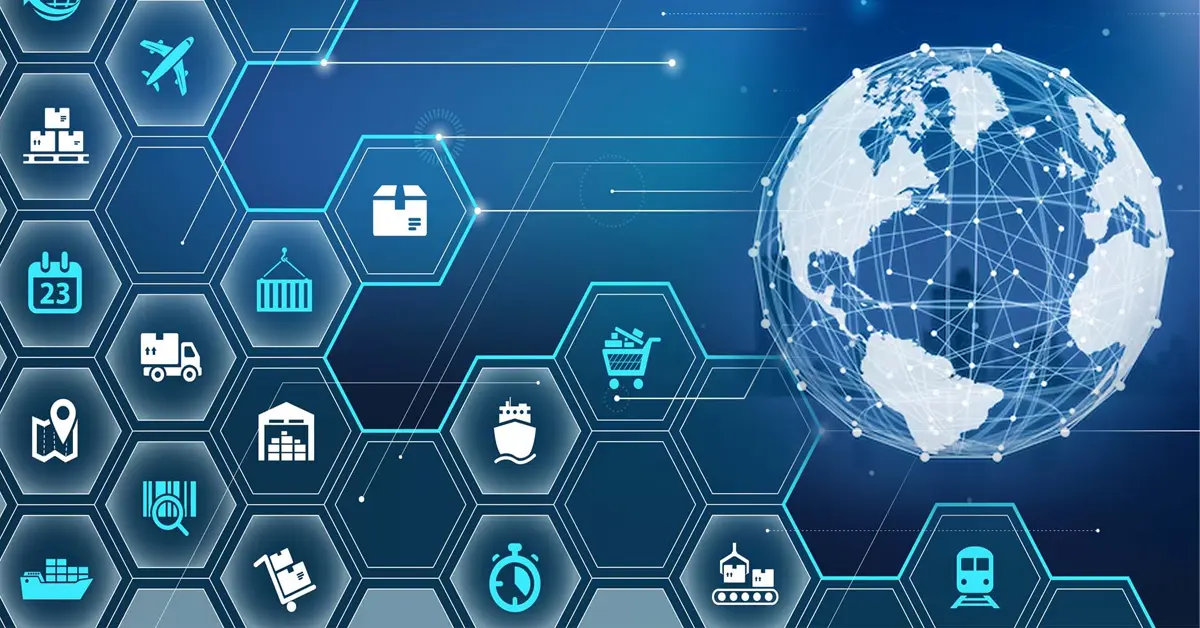
Published 05/30/2023
In the past few decades, we’ve witnessed an unprecedented transformation of global trade and supply chains. Driven by technological advances, the growth of emerging markets, and the expansion of free trade agreements, supply chains have become more complex and interconnected than ever before. However, as we’ve seen in recent years, this globalization has also exposed supply chains to new risks and challenges, leading to the rise of reshoring, nearshoring, ally-shoring, and other new supply chain paradigms. In this article, we’ll take a closer look at the evolution of global supply chains, the lessons learned from recent disruptions, and why many companies are looking to Mexico to future-proof their supply chains.
From Consolidation to Fragmentation: The Rise of Global Value Chains
Modern supply chains began consolidating during the 1950s and 60s when the United States emerged as one of the world’s most important economic players. This period was characterized by the consolidation of industries and the vertical integration of production processes, with companies seeking to create economies of scale and scope by controlling as many stages of the value chain as possible. However, this changed with the rise of globalization and the lowering of trade barriers. This allowed companies to fragment their production processes and outsource specific stages of the value chain to other countries to lower costs.
The result has been the rise of global value chains, in which products and services are exchanged across multiple countries and regions. Today, more than 80% of products and services traded globally are now fragmented and dispersed across many countries. This has led to the emergence of new roles in the supply chain, such as contract manufacturers, logistics providers, and distributors.
Furthermore, advancements in technology and transportation have made it easier and faster to move goods and services across borders, providing opportunities for companies to access new markets and reduce production costs. However, it also means that countries and regions are increasingly interdependent in terms of trade and investment.
Dependence on China and the Risks of Over-Consolidation
One consequence of this shift towards fragmentation has been the heavy dependence on specific countries, particularly China, followed by Japan and the United States, and other suppliers spread across Europe, Africa, Asia, and Latin America. China is the biggest supplier of more than 300 businesses and the largest exporter of goods to the United States. This over-consolidation has exposed supply chains to new risks and challenges, as we’ve seen in recent years.
As its well-known, in 2020, the COVID-19 pandemic revealed the high risk of this over-consolidation and -over-dependence on China. The pandemic triggered large-scale disruptions, including shortages of essential components such as microchips, soaring transport costs due to a lack of shipping containers, and the closure of ports in Shanghai. This led to widespread supply chain disruptions, with many businesses struggling to secure the raw materials and components needed to produce their goods.
The Rise of Reshoring, Nearshoring, and Ally-shoring
One response to these challenges has been the rise of reshoring, nearshoring, and ally-shoring in offsetting risk. As we know, reshoring refers to the practice of companies returning to their country of origin to lower costs and improve quality control. Nearshoring, on the other hand, refers to the location of suppliers near anchor companies to reduce supplier risks and improve communication. Ally-shoring is reworking supply chains and sourcing raw materials among political allies and countries with trade agreements to minimize geopolitical risks, improve supply chain resilience, and strengthen economic and national security.
These trends represent a paradigm shift where the decision-making process is broadened from focusing only on efficiency and cost and to also prioritizing security and certainty in on-time deliveries to prevent shortages. As businesses look to future-proof their businesses, they are increasingly looking to develop regional supply chains and produce products closer to home. Mexico is a country that holds great promise in this regard, as it offers a variety of advantages for businesses looking to shift away from over-dependence on China and stay competitive in this new global panorama.
Looking to the Future: The Case for Mexico
Located close to the US and with many free trade agreements, Mexico is attractive for businesses looking to diversify their supply chains and reduce their over-dependence on China. It also offers a skilled, ample, and competitively-priced workforce, macroeconomic stability, plus programs and certifications to encourage foreign trade and reduce tariffs and taxes, including IMMEX, PROSEC, OEA, VAT certification, and regional incentives, among others. Additionally, Mexico has a well-developed industrial infrastructure and mature industrial ecosystem, making it an ideal partner for businesses looking to build more resilient and sustainable supply chains.
The evolution of global supply chains has brought new opportunities and challenges to businesses worldwide. While globalization has enabled companies to expand into new markets and reduce costs, it has also exposed supply chains to new risks and vulnerabilities. As we’ve seen in recent years, over-dependence on any single country can be particularly problematic and lead to significant supply chain disruptions in times of crisis. New paradigms such as reshoring, nearshoring, and ally-shoring help businesses to future-proof their supply chains and due to its many advantages, Mexico is playing a central role in the future of regionalized supply chains and vertical integration across North America.
Source: Proprietary information owned by Claudia Ávila Connelly on Nearshoring and Opportunities for Mexico
If you would like to find out more about this topic or are interested in receiving a complimentary business case analysis for your operation in Mexico, please fill out this form or contact us at:
US toll-free: +1 (877) 698 3905
CN Toll-free: +1 (400) 076 8899
Attention hours from M to F 9:00 - 18:00 CST
Please note that we do not accept job applications here. If you are interested in applying for a position, please visit the following link: https://www.americanindustriesgroup.com/jobs/
YOU MIGHT ALSO LIKE


